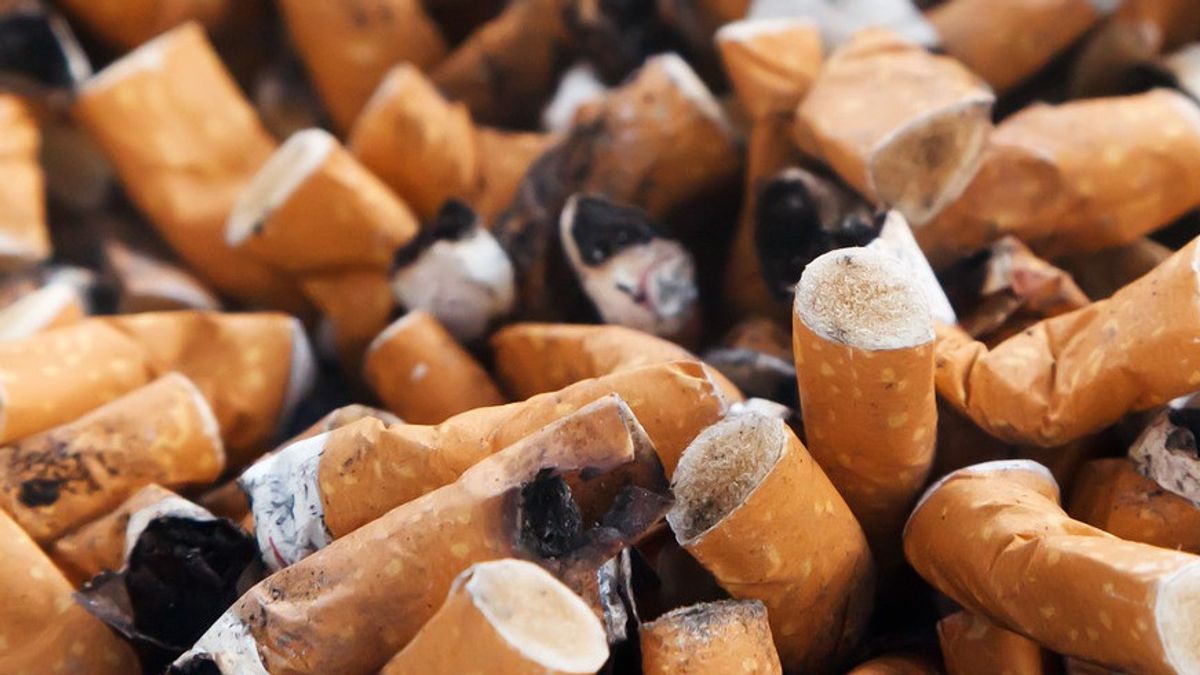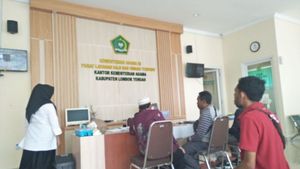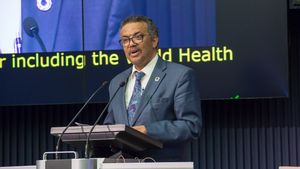JAKARTA - The Tobacco Products Industry (IHT) in Indonesia is one of the industries that has contributed greatly to the Indonesian economy. However, in recent years, this industry has experienced a decline in production volume.
Currently there are only about 700 small, medium and large manufacturers in Indonesia, whereas in 2007 there were more than 4,000 manufacturers. This decline also had an impact on the labor sector.
As of 2014, more than 90 thousand tobacco factory workers have experienced termination of employment. The business climate that is increasingly not conducive, and the presence of increasingly excessive regulations are believed to have contributed to further pressure on this industry.
One issue that is currently being widely discussed and adding to the anxiety of IHT actors is the process of revising Government Regulation (PP) number 109 of 2012 concerning Safeguarding of Materials Containing Addictive Substances in Tobacco Products for Health.
The revision initiated by the Ministry of Health team without involving business actors includes several points of change that have an impact on the sustainability of IHT. A number of points of change include the change in the size of the health warning image from 40 percent to 90 percent of the total packaging; prohibition of the use of additives; and the prohibition of advertising in a number of media.
The Ministry of Health believes that this revision will help reduce the prevalence of smoking, especially among children and adolescents. This revision process was rejected by industry players and associations. Apart from the Ministry of Health not being open in conveying the background of the need for revision of PP No.109 of 2012, stakeholders such as industry associations, farmer associations, traders, and consumers have never been involved in this revision process.
In response to this, the Chairman of the Indonesian White Cigarette Producers Association (GAPRINDO) Muhaimin Moeftie stated that his party is aware that tobacco products are products that have risks. Therefore, his party always coordinates and fully respects the government's efforts to control consumption.
"However, in seeking a fair and balanced solution, the government should also consider the economic and social impacts on the entire IHT supply chain. Do not miss involving and accommodating input from IHT stakeholders, including industry players," Muhaimin said in a statement received by VOI, Monday. 23 December.
In line with what was stated by other tobacco associations, GAPRINDO believes that PP No. 109 of 2012 which is currently in effect have actually accommodated the rights of industry players as well as the rights of the public. The association proposes that the government can focus on concrete efforts that can be done to reduce the prevalence of smoking, such as education and controlling access as well as cigarette consumption by children and adolescents.
Muhaimin added, there are many strategic efforts that can be done to reduce the number of underage smokers without having to suppress the sustainability of IHT, for example socialization to retailers / retailers; incorporating smoking hazards into educational curricula; education about childcare for parents; regular meetings with youth groups in the regions, and others.
"With education that is more structured and targets many layers, of course it can make child smoking prevention measures more effective, instead of punishing industry players unilaterally," he said.
Although efforts to control the consumption of tobacco products should be the responsibility of the government, GAPRINDO members have also contributed to communicating the prohibition of access to cigarettes by children and adolescents in accordance with Government Regulation No. 109 of 2012. Going forward, GAPRINDO also conveyed plans to continue the socialization program to retailers in the field.
The aim of this program is that fellow traders do not sell cigarette products to children and adolescents under the age of 18 for any reason. In implementing the program, GAPRINDO hopes that the Government can participate in providing its support so that its distribution becomes wider and runs effectively.
Furthermore, GAPRINDO hopes that the government should consider stopping the revision process of Government Regulation no. 109 of 2012. GAPRINDO also asks the government, especially the Ministry of Health, to open the door to discussions with industry in order to produce the right solution for all parties.
As a legal industry that has a major contribution to the country's economy, we hope that the Government can pay more attention to the sustainability of this industry, which houses 6 million Indonesians. Our concern is that if the efforts to control consumption are not decided wisely and accommodatively for all parties, it will only have a further impact which is detrimental to the government and society itself, "he explained.
Economically, IHT in Indonesia is still a significant contributor to state revenue. National excise revenue revenue in 2018 reached Rp. 153 trillion, contributing to at least 95.8 percent of national excise. There is concern if the revision process of PP. 109/2012 will continue without involving the entire industrial supply chain from upstream to downstream, will have a broad impact on the Indonesian economy.
"Starting from the increasing number of manufacturers who are forced to go out of business, which will cause an increase in the unemployment rate, to the shift of consumers from official products to unofficial products whose quality cannot be accounted for and cause loss of state income," he concluded.
The English, Chinese, Japanese, Arabic, and French versions are automatically generated by the AI. So there may still be inaccuracies in translating, please always see Indonesian as our main language. (system supported by DigitalSiber.id)













